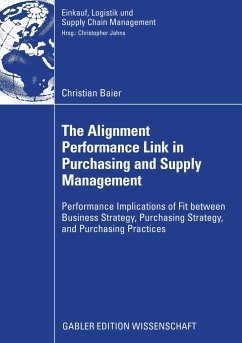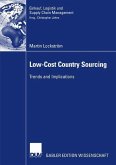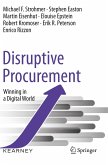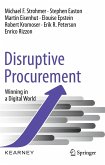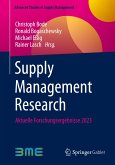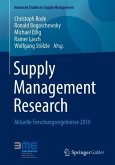Foreword In today's markets, companies face ever growing international competition, radical technological change, and increasingly demanding customers. These developments force managers to focus on core competencies and result in decreasing in-house val- add across industries. Adequate supplier selection and competent management of the supply base have thus become key firm success factors. As a consequence, purchasing and supply management (PSM) has developed into a powerful weapon for contributing to a firm's competitive advantage along dimensions such as cost, quality, and inno- tion. Such a contribution, however, critically depends upon the alignment of purch- ing strategies and practices with the company's overall business strategy. Only if the purchasing function supports the firm's competitive position can it effectively improve profitability. Unfortunately, existing research still lacks both the theoretical concepts and empirical foundation to provide detailed guidance to practitioners regarding how such alignment can be achieved and what impact it should have on firm performance. The doctoral thesis presented by Christian Baier develops and tests a comprehensive model of the alignment-performance link in PSM in order to close this knowledge gap. Drawing on insights from the market-based view, the resource-based view, princip- agent theory, and contingency theory, the author derives a solid theoretical understa- ing of the relationships between business strategy and strategies and practices at the functional level. By applying the theory of production competence to the PSM context, two critical levels of alignment are identified: strategic alignment, i. e.

